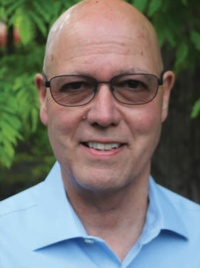Bradley R. Colman
Science and service are at the heart of the AMS Mission. People across the Society work tirelessly to support and deliver the tremendous value that only our combined backgrounds in science, operations, and communication can provide. The value of our community to society is confirmed daily across the weather industry and by the trust placed in our frontline NWS and broadcast meteorologists. Yet, AMS faces multiple challenges. Some are internal to the Society: declining membership and disrupted business models; others are shared across our global community.
Climate change is an existential threat to humanity and any solution depends critically on the knowledge, skills, and talents of our members. As such, AMS should lead the conversation on how we live in a warmer world and help provide the scientific underpinnings needed to guide critical decisions and help mitigate effects such as population displacements, disruptions in global food supply, and health risks. AMS, as a trusted advocate for scientific integrity and transparency, must aggressively and proactively fight disinformation campaigns—with both the decision-makers and the general public. It must also work to ensure just and equitable solutions for everyone impacted by climate change, including those from marginalized communities whose voices have too often been ignored.
We must remain focused on developing and supporting a strong and adaptable workforce. AMS should continue its incredibly successful student, early-career, and workforce development activities. We should consider how recent experiences with remote conferencing can be used to improve, and possibly expand, participation in future meetings. AMS is also emerging as a strong leader and advocate for an inclusive, diverse, and respectful community—yet more must be done. Personally, I have been encouraged to see growing support for the LGBTQ community.
As president, I would work with our new executive director, staff, and many dedicated volunteers to chart a course that energizes and supports our multidisciplinary and diverse membership to address these challenges successfully. Thank you for your consideration, I would be honored to serve you in this role.
Bradley R. Colman
Bradley R. “Brad” Colman is the director of Weather Strategy for Bayer/The Climate Corporation. In this role, he coordinates across multiple business units to set Enterprise weather priorities, and works with vendors, engineers, and climate scientists to provide tailored decision-support information to Bayer’s global agricultural industry. Before working for Climate, he was principal program manager on a Microsoft team charged to develop a sole-source weather service for their ecosystem.
Prior to joining the private sector, Colman enjoyed a long and diverse career with NOAA, where he worked at NWS’s forecast offices in Seattle, Washington (MIC & SOO), and Juneau, Alaska (forecaster); NOAA’s Environmental Research Laboratory, Boulder, Colorado (research meteorologist); and NOAA’s Meteorological Development Laboratory, Silver Spring, Maryland (acting director). Colman has served as affiliate associate professor at the University of Washington and affiliate assistant professor at the University of Idaho.
He is an AMS Fellow (1995), recipient of the Mitchell Award (2000), and has served as commissioner of the Planning Commission (2012–15) and the Scientific and Technological Activities Commission (2001–06); councilor and member of the Executive Committee (1997–2000); chief editor of Weather and Forecasting (1992–97); and associate editor of Monthly Weather Review (1990–93).
Colman earned his Sc.D. in atmospheric sciences from the Massachusetts Institute of Technology (1984) and a B.S. in Earth sciences from Montana State University (1977). He coedited an award-winning two-volume Handbook of Weather, Climate, and Water (Wiley Press, 2003). He has also authored or coauthored more than 30 journal articles, contributed content to 4 books, and coauthored the NRC report, Where the Weather Meets the Road (2004). He is a Bayer Science Fellow (2018), an elected Member of the Washington State Academy of Sciences (2014), cochair of the Environmental Information Services Working Group (NOAA-SAB, 2018–present), and a member of the National Academy of Sciences’ Board on Atmospheric Sciences and Climate (BASC, 2019–present).
